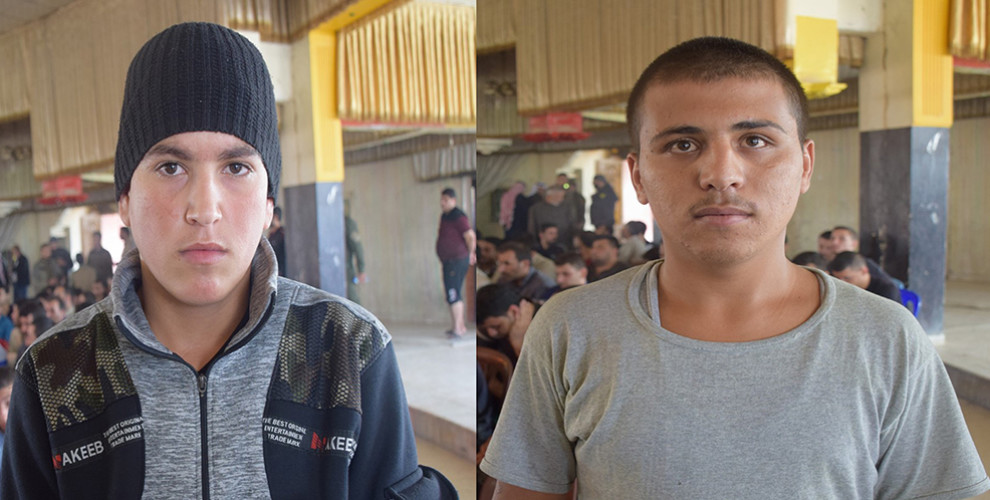Members who joined ISIS as children talk
The young people ISIS deceived and armed even though they were minors, to use them in attacks against the people say they have realized the truth only after the fact.
The young people ISIS deceived and armed even though they were minors, to use them in attacks against the people say they have realized the truth only after the fact.

Syrian Democratic Forces (SDF) General Relations Committee has released 102 detainees, accused of joining ISIS, on initiative from the Northern and Eastern Syrian Autonomous Administration. Mihemed Necar and Ebid El-Mudahî Hamadî, released detainees who joined ISIS when they were children, spoke about why they joined.
MIHEMED NECAR
Born in Aleppo, Mihemed Necar is now 18. Necar joined ISIS in 2016 when he was just 16 years old. Necar said they couldn’t find any work after ISIS gangs invaded the region and continued: “My family was going through financial hardship. When ISIS gangs invaded the area we lived in, me and one of my brothers joined ISIS to be able to provide for our family.”
Necar said he was sent to battle fronts despite his young age: “Children of rich families and gang leaders were taken directly into the administration ranks. But children of poor families like us were made to dig ditches from dawn to dusk.” Necar said ISIS gangs spoke to them constantly about religion and morality at first: “But after we joined the gangs, I witnessed their inhumane attacks against civilians. I realized they had nothing to do with all the things they talk about.” Necar fled Aleppo and went to Raqqa, and to Deir ez-Zor afterwards. In the end, he turned himself in to the SDF with his brother and was thus saved from ISIS gangs. Necar said he realized the truth completely with the SDF, and added that he will serve the society he lives in.
EBID EL-MUDAHÎ HAMADÎ
Ebid El-Mudahî Hamadî is from Deir ez-Zor and is 17. He joined the gangs 2 years ago at just 15 years old, deceived with promises of making money. Hamadî said the ISIS gangs call for jihad constantly in mosques and added: “I started to believe them. I was deceived and joined ISIS with a 20 person group.” Hamadî said he participated in a battle against regime forces: “I was terrified of war, but they threatened us to not leave our positions.”
Two of Hamadî’s brothers were martyred in the SDF, fighting against gangs. When asked about the possibility of killing his brothers, Hamadî said: “I heard my brothers had joined the SDF. I regretted where I was then. I wanted to flee, but I had witnessed the torture inflicted upon deserters and I was afraid to run.”
Hamadî said all the so-called commanders, and all gang leaders are foreigners, adding that his group was led by a Tunisian man called Ebû Ebdullah El-Tunisî.
Hamadî fled Deir ez-Zor a year ago with his family, with help from smugglers, and sought refuge in the SDF controlled region. Hamadî took part in artistic and cultural activities in the SDF controlled region: “I never felt like a stranger there, and they helped me get over the trauma I experienced. I won’t ever forget their efforts.”